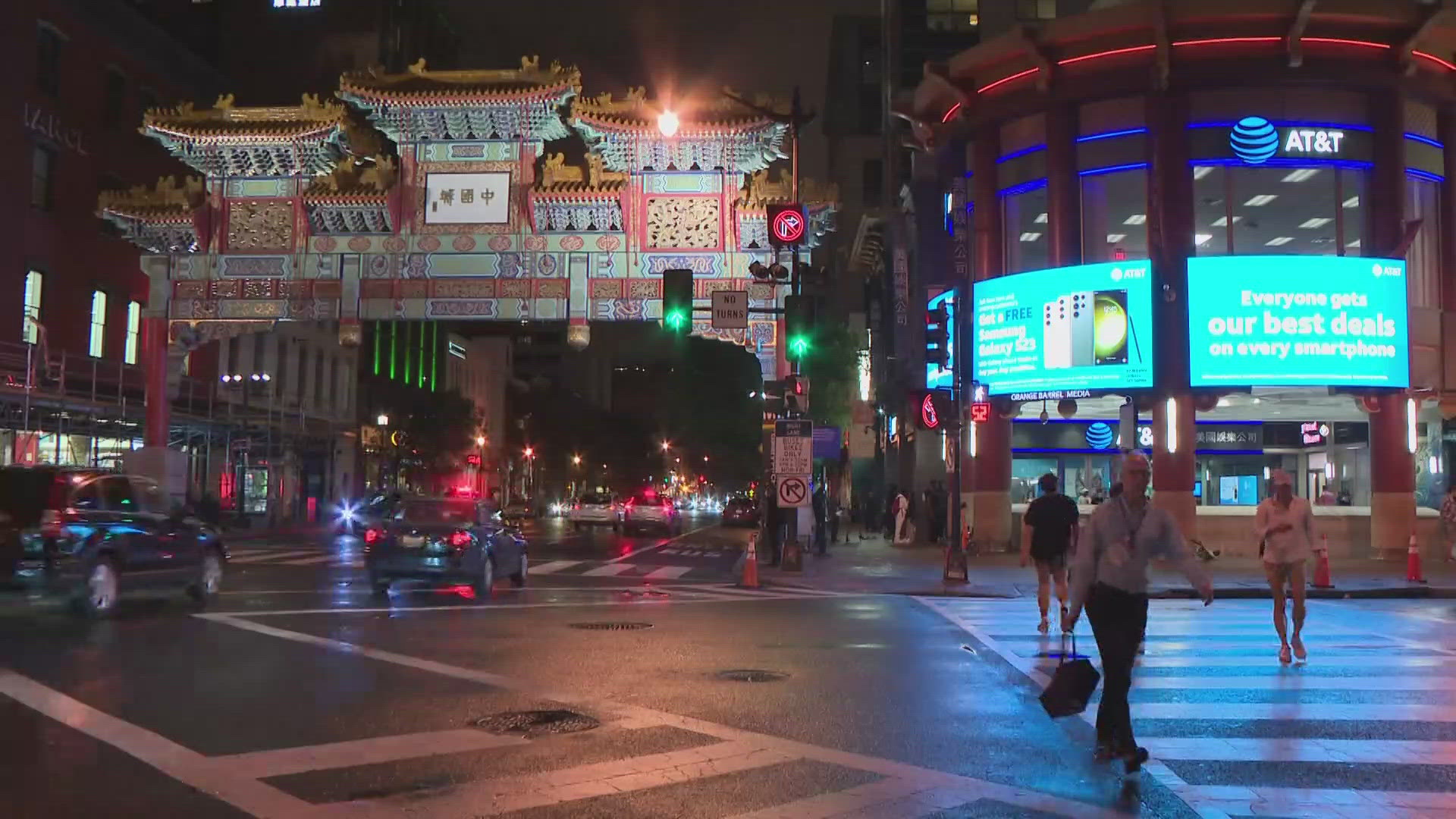WASHINGTON — Mayor Muriel Bowser is set to roll out a plan in Chinatown that she says will keep the neighborhood 'safe and clean'.
On Monday morning the announcement was officially made stating that located at 675 H Street Northwest in Chinatown would be the location of the first of a series of safe commercial corridor hubs. This location was established as a priority area.
The hub will be open for residents to walk-in for services from Monday through Friday starting at 9 a.m. to 6 p.m. Those services and uses for the hub include:
- DC Police officers from the Chinatown Crime Patrol Unit and Chinatown Bike Unit having access to the space 24/7 to complete critical administrative tasks without having to return to the First District’s main station.
- Mayor’s Office of Community Relations and Services and Mayor’s Office of Nightline and Culture representatives will be available at the hub from Monday through Friday from 9 a.m. to 6 p.m. to connect residents and business owners with District agencies to address their needs.
- Mayor’s Office of Asian Pacific Islander Affairs representatives will be available Monday through Friday from 9 a.m. to 6 p.m. to address the needs and concerns of the AAPI community in the neighborhood.
- Department of Behavioral Health representatives will be available at the hub to engage with people who may be experiencing mental health and/or substance use challenges and connect them to treatment and support.
- Department of Human Services representatives will be available at the hub to offer outreach services for those experiencing homelessness and other human services supports.
The staff will be able to help respond to real-time challenges in the community, according to the mayor's office.
The improvements to the corridor have become top priority ahead of the potential departure of the Washington Capitals and Wizards from downtown D.C. At the beginning of the year, Bowser launched a task force focused on creating a new vision of the two-block neighborhood without the presence of the two sports teams.
During a public safety update with the District Council, Bowser previewed the hubs telling reporters the task force was analyzing, "How can we better use the public space so that we are bringing people to the area outside of event days, that support the small businesses that are in and around here."
Visible drug sales, increased presence of homeless people, and disruptive panhandling have created negative perceptions and experiences in the corridor, according to a study released last year by the Downtown DC Bid.
Bowser's plan in Chinatown has garnered pushback from some groups including the "Save Chinatown Solidarity Network." Protesters interrupted the mayor and Councilmembers Phil Mendelson and Brooke Pinto during their speeches at the District's Lunar New Year celebration.
"We are currently focused on how we grow our downtown," Bowser said as protesters voiced their concerns.
Ren Lee who was part of the demonstration says that today less than 300 Chinese Americans remain in D.C.'s Chinatown, many of whom live in the Museum Square Apartments. Lee told WUSA9 that there is concern among the residents that the vision of a new Chinatown means displacing them from their home.
"As the Mayor thinks of a task force to rejuvenate Chinatown, rejuvenate downtown. We cannot forget about the entrenched residents that live here," Lee said.
Bowser says residents will be able to provide public input during community meetings as the vision for Chinatown moves forward. The final plan for the corridor is expected to be released by the end of 2024.
In addition, Bowser announced that two additional community hubs will be established in the U Street area and in Anacostia. They are set to be open in Spring 2024.
WATCH NEXT:

